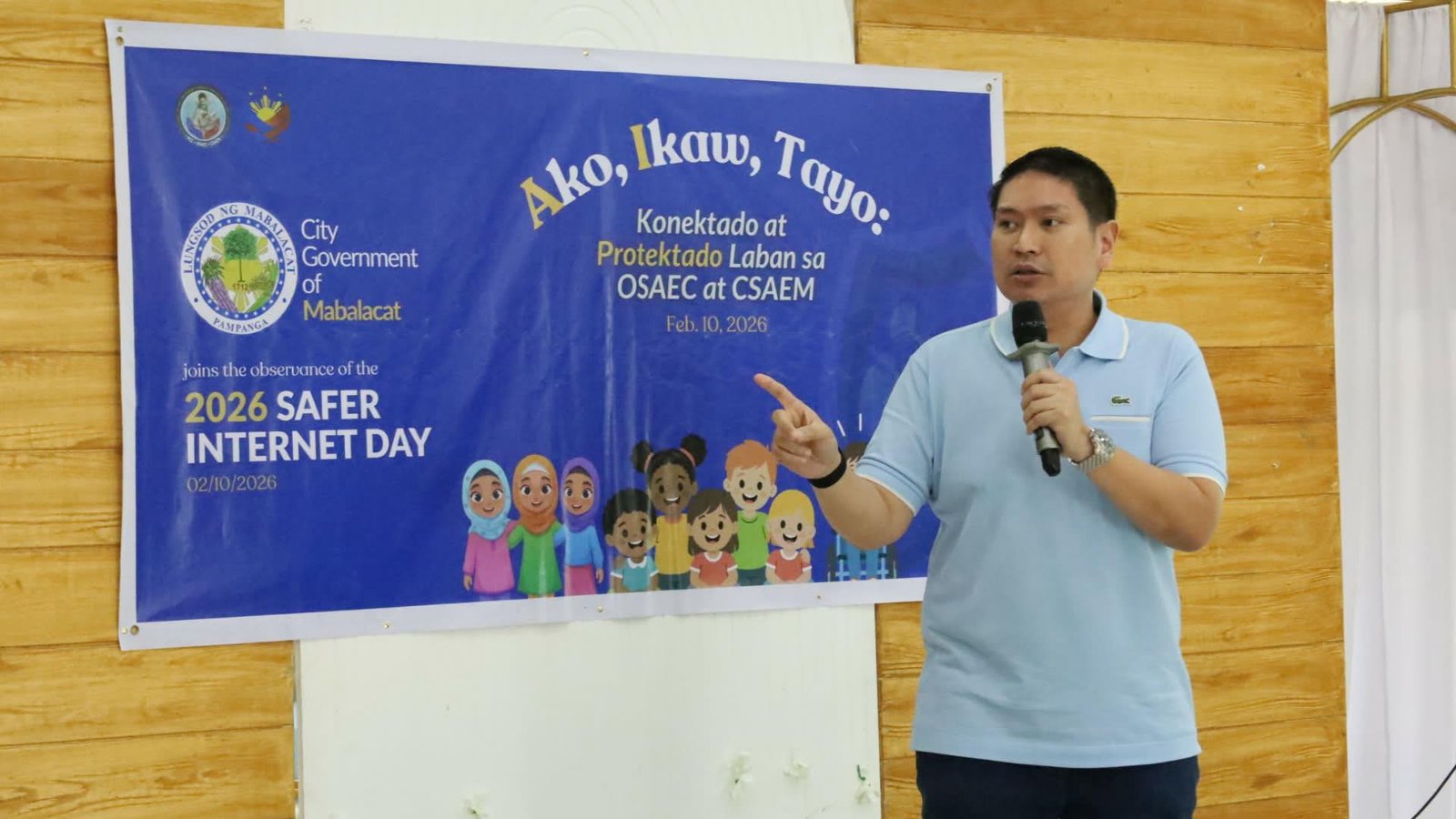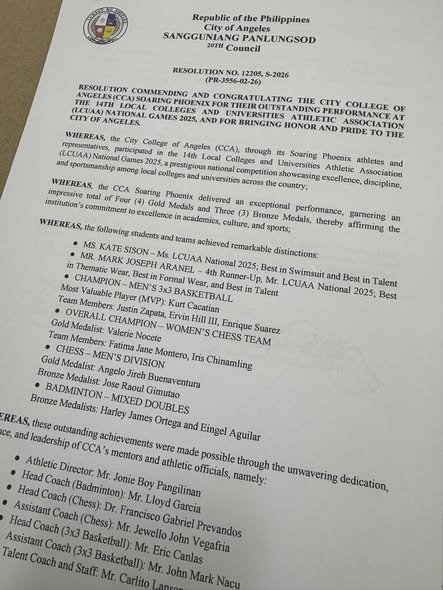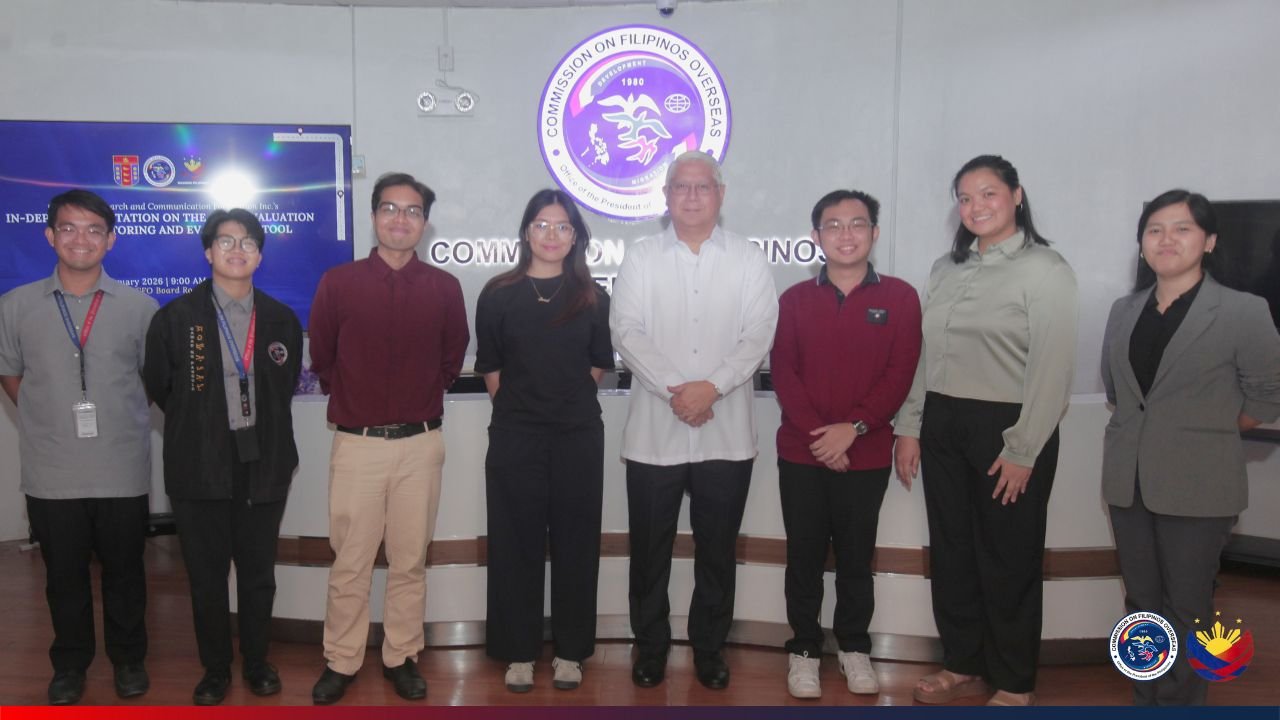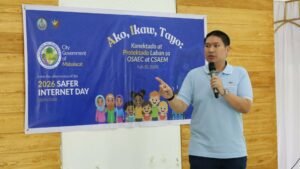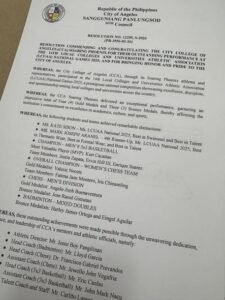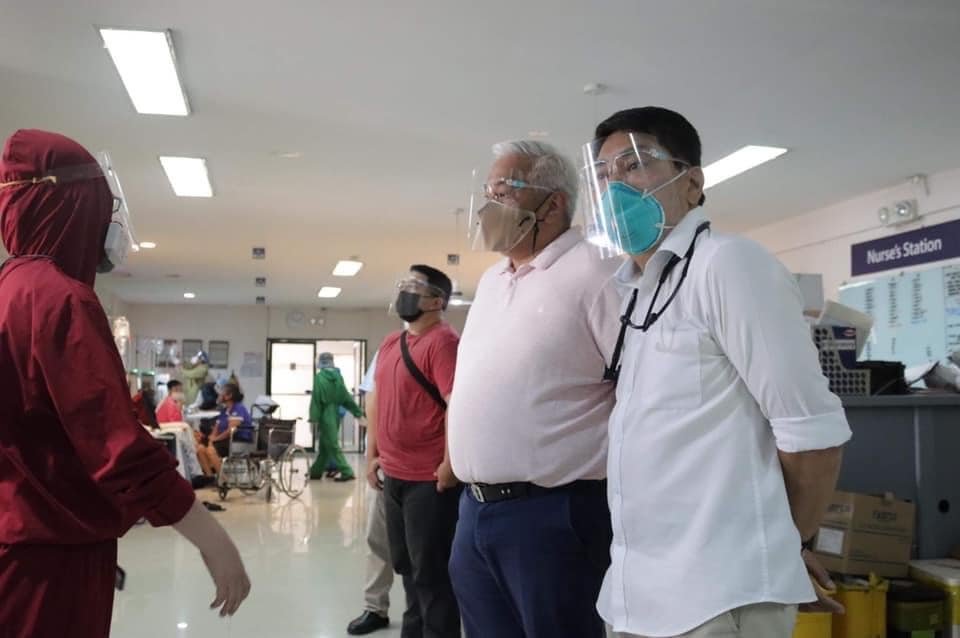
Rafael Lazatin Memorial Medical Center Chief of Hospital Dr. Froilan Canlas details how the Angeles City Government led by Mayor Carmelo “Pogi” Lazatin, Jr. gave home quarantine a try, but it did not work.
Canlas, who is a Doctor of Internal Medicine, and has been practicing medicine for 26 years, said “That’s (home quarantine) what we have been doing. And it did not work. That’s why the City Health Office opted to do facility quarantine, except for bedridden patients who were monitored by health workers from RLMMC.”
He furthered that it is difficult to rely on a patient to strictly undergo home quarantine for 14 days in his own room or house. “It’s like giving the patient a chance for 14 days to violate protocol. And they always do. It’s human nature,” Dr. Canlas added.
One problem cited by Dr. Canlas with home isolation is the inadequacy of facilities, including an exclusive bathroom in the isolation room of patients with COVID-19, as stated in the protocol of the Department of Health.
CHO’s assessment also shows that if home isolation continues, chances of confirmed cases will increase threefold.
No exemption
“Walang exemption, walang double standard,” Dr. Canlas said. He revealed that even Mayor Lazatin and his Chief Adviser IC Calaguas, who both had been inflicted by the virus, stayed in the hospital for 7 days, and were in hotel quarantine for another 7 days.
Isolation rooms
In May 2021, Angeles City became one of the Local Government Units which immediately designated COVID-19 facilities.
There are 480 isolation rooms for the use of patients, 230 of which are allotted free for indigent Angeleños. These rooms come with air coolers and free meals (from breakfast to dinner).
The other 220 rooms are for those who want their rooms to be upgraded from standard, upon agreement to pay 50% of their quarantine accommodations. Nevertheless, meals are still provided for free.
Twenty rooms at the Mexico Isolation Facility have also been allotted by the Provincial Government of Pampanga for use by the city government, while 10 have also been allotted at the National Government Administrative Center.
Subsidized rooms
It is the choice of the patient what room he or she could stay in — either rooms provided for indigents paid for by the city; or rooms with air conditioning units subsidized 50% by the city government, and the other half shouldered by the patient.
Prior to the transfer to quarantine rooms, personnel should confirm if the patient has the means to pay, or will just avail rooms designated for indigent patients.
Further, ambulances are solely dedicated to the facilities, serving as transportation vehicles for the patients.
The RLMMC also installed a central nurse station at the Hotel America, one of the isolation facilities designated by the city government.
Household transmission
Studies show that household transmission of COVID-19 is very common, especially in children and adults. The lack of facilities at home for complete isolation increases the risk of families contracting the virus.
Dr. Canlas shared a timeline of events which usually happen during home quarantine:
*From Day 1 to Day 5, not even family members can go near the patient. The patient will comply with isolation.
**Around Day 6 – patient will start going to areas outside his room, but avoiding interaction with family members.
**Around Day 8 – increasing interaction/ engagement with the rest of the family
**Around Day 9 – patient who was quarantined alone will drive his car, drive thru at McDo, and back home. “Pwede pala, next time ulit”. (kita kits)
**Around Day 12 – patient will discharge himself from quarantine, since he will be discharged in 2 days anyway.
Dr. Canlas said this is the reality at home. The task of strictly isolating the patient harboring the COVID virus until it disappears by Day 14 is a failure, he said.
Control and movement
The prohibition of home quarantine is to control the movement of patients inflicted with the disease by having them just stay in isolation areas.
“In the past experiences of the city, there were instances when patients confined in a facility go about. We had to tap the Angeles City Police Office for monitoring. Paano pa kaya sa sariling bahay na walang nagbabantay?,” Canlas stressed.
Monitoring by health care professionals
Patients who stay in isolation facilities can be monitored properly by health care professionals.
Daily monitoring is being conducted by nurses to check on the patients. Free vitamins and necessary medicines needed for the patients were provided by the city government starting last Sept. 17. Staying in facilities can protect not just the patient but their family members from contracting the virus.
Facilities have medical equipment in case of emergencies while medical personnel are available to respond immediately. This, Canlas stated, “will also help lessen the workload of our healthcare professionals, saving time from visiting households to get the patients’ vitals.”
All preventive measures being undertaken by the Angeles City Government for home quarantine protocols are in accordance with Memorandum No. 816, Series of 2021 released by Lazatin last May 4, 2021 pursuant to the IATF protocols.

